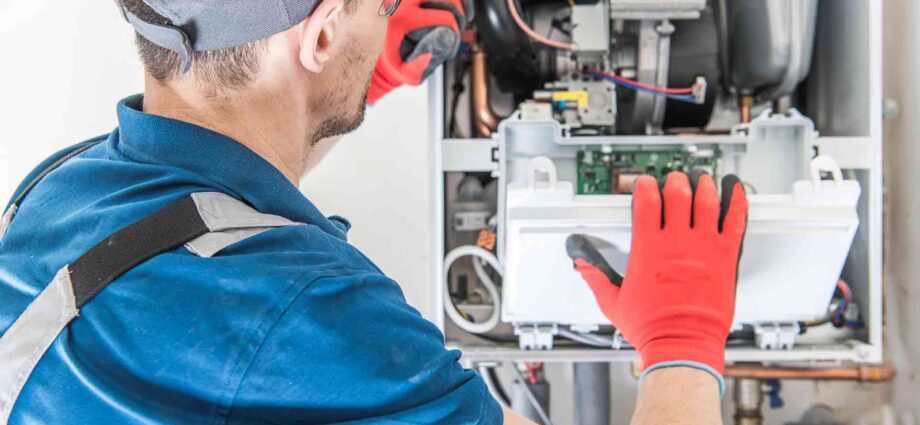Gas boilers are an essential part of many households, providing heating and hot water. Like any mechanical system, boilers can experience issues that require repair. Understanding how to identify and address these problems can save time, money, and discomfort, especially during the colder months. This guide provides an overview of common gas boiler issues, troubleshooting tips, and when to seek professional help.
1. Understanding How a Gas Boiler Works
Before diving into repair tips, it’s helpful to understand the basic functioning of a gas boiler. A gas boiler heats water through a heat exchanger using natural gas or propane. The heated water is then circulated through radiators or a system of pipes to provide heating. The system can also deliver hot water for household use.
Key Components:
- Burner: Ignites the gas to create heat.
- Heat Exchanger: Transfers heat from the burner to the water.
- Circulator Pump: Moves heated water through the system.
- Expansion Vessel: Maintains the pressure within the system.
- Thermostat: Controls the temperature by regulating the boiler’s operation.
2. Common Gas Boiler Problems and Troubleshooting
No Heat or Hot Water: This is a common issue and can be caused by several factors.
- Thermostat Issues: Ensure the thermostat is set to the correct temperature and is functioning properly.
- Low Pressure: Check the boiler’s pressure gauge. If the pressure is too low, the system won’t function correctly. Typically, the pressure should be between 1 and 2 bars.
- Pilot Light or Ignition Failure: Older boilers have a pilot light that can go out, while newer models have an ignition system that can fail.
Leaking or Dripping: A leak can cause significant damage if not addressed.
- Corrosion: Over time, pipes and components can corrode, leading to leaks.
- Pressure Relief Valve: If the system pressure is too high, the pressure relief valve may release water to prevent damage.
Strange Noises: Unusual sounds like banging, whistling, or gurgling often indicate underlying issues.
- Kettling: This happens when limescale builds up on the heat exchanger, causing it to overheat and produce steam bubbles.
- Air in the System: Air trapped in the system can cause gurgling noises. Bleeding the radiators can often resolve this issue.
Radiators Not Heating Evenly: This can result in uneven heating throughout the home.
- Balancing Issues: The radiators may need to be balanced to ensure even distribution of hot water.
- Sludge Buildup: Over time, sludge can accumulate in the system, restricting water flow and reducing efficiency.
3. Basic Boiler Maintenance Tips
Regular maintenance can prevent many boiler issues and extend the lifespan of the system.
Annual Servicing: Schedule a professional boiler service at least once a year. This includes checking the system’s efficiency, cleaning components, and identifying potential issues before they become serious.
Pressure Checks: Regularly check the boiler’s pressure gauge and adjust as necessary. Most boilers have a filling loop that allows you to add water to the system if the pressure is low.
Bleeding Radiators: If you notice cold spots on your radiators, they may need bleeding to remove trapped air.
Checking for Leaks: Regularly inspect the boiler and surrounding area for any signs of leaks. Early detection can prevent more serious damage.
4. When to Call a Professional
While some minor issues can be handled by homeowners, others require professional intervention:
- Gas Smell: If you smell gas, immediately turn off the gas supply, ventilate the area, and contact a professional. Do not attempt to fix gas leaks yourself.
- No Pilot Light or Ignition Issues: If the pilot light goes out frequently or if your boiler has ignition issues that you cannot resolve, call a professional.
- Complex Repairs: Issues like replacing parts, dealing with internal leaks, or handling electronic controls should be left to qualified technicians.
5. Choosing the Right Professional
Selecting a qualified gas engineer is crucial for ensuring safe and effective boiler repair.
Certifications: Ensure the professional is Gas Safe registered. This certification is mandatory for anyone working on gas appliances in many countries.
Experience and Reviews: Look for professionals with a solid track record and positive customer reviews. Experience with your specific type of boiler can be particularly beneficial.
Quotes and Warranties: Obtain multiple quotes to compare prices and services. Check if the repair service offers warranties on their work, which can provide peace of mind.
6. Preventive Measures for Boiler Longevity
To extend the life of your gas boiler and minimize the need for repairs, consider the following preventive measures:
Use of Inhibitors: Adding chemical inhibitors to your central heating system can help prevent corrosion and sludge buildup, maintaining efficiency.
Water Softening: In areas with hard water, consider using a water softener to reduce limescale buildup, which can damage the heat exchanger.
Regular System Flushing: Power flushing your heating system can remove sludge and debris, improving efficiency and preventing blockages.
Advanced Troubleshooting Techniques
Beyond basic issues, gas boilers can encounter more complex problems that require a deeper understanding of the system’s mechanics.
Boiler Cycling On and Off Frequently: This issue, known as short cycling, can lead to increased energy consumption and wear on the boiler.
- Thermostat Location: If the thermostat is in a location prone to temperature fluctuations (e.g., near drafts or heat sources), it may cause the boiler to cycle unnecessarily. Relocating the thermostat can resolve this issue.
Conclusion
Gas boilers are vital for home comfort, especially during colder months. Regular maintenance and prompt attention to issues can prevent major problems and ensure your boiler operates efficiently. While basic troubleshooting can resolve some issues, always prioritize safety and consult a professional for complex or potentially hazardous situations. By understanding your boiler’s workings and knowing when to seek help, you can enjoy a warm, comfortable home all year round.


